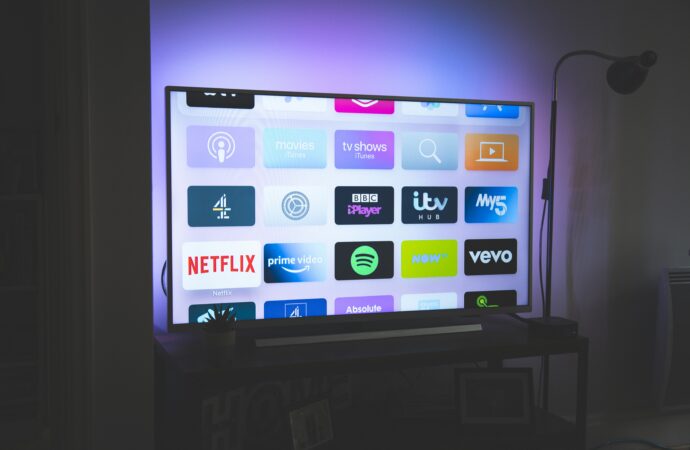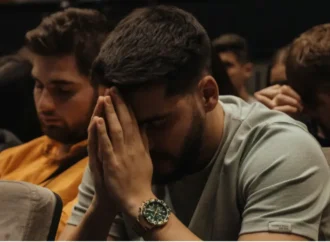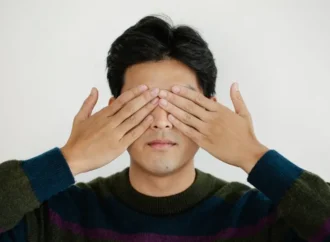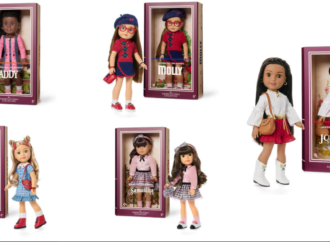This statement captures the common attitude toward entertainment today. More often than not, we think that what we consume on our screens is harmless and detached from our values or behavior.
But is it?
“We become what we behold,” the saying – often attributed to Marshall McLuhan, a philosopher and expert in the power of media – goes. This idea suggests that entertainment is not just for enjoyment. Instead, it shows that the movies, television shows, and music we consume all has creative power in our lives.
Neil Postman suggests something similar about the power of media in his groundbreaking book, “Amusing Ourselves to Death.” He writes:
We are by now well into a second generation of children for whom television has been their first and most accessible teacher and, for many, their most reliable companion and friend. To put it plainly, television is the command center of the new epistemology. There is no audience so young that it is barred from television. There is no poverty so abject that it must forgo television. There is no education so exalted that it is not modified by television. And most important of all, there is no subject of public interest—politics, news, education, religion, science, sports—that does not find its way to television. Which means that all public understanding of these subjects is shaped by the biases of television.
Those words are haunting. The idea that television and other endless video content has become our “first and most accessible teacher”? That is something we don’t want to admit.
But it’s true, isn’t it?
From the earliest ages, our kids watch television. Whether on the big screen in the living room or on our phones as we try to occupy them at a restaurant, American children are increasingly watching screens. They behold entertainment – whether traditional television or short-form video content – for hours at a time.
But they’re not just being entertained – no, they’re learning. They’re getting lessons on what is normal, how people should interact with each other, and what humans should love and prioritize.
Most of us know the impact that entertainment has on our kids. That’s why we guard what they watch so closely. That’s why Plugged In and other parental guides exist. That’s why every time Disney puts a homosexual character in a kids show it makes the news.
While we work hard to protect our children from unhealthy messages, we often forget that we’re shaped by entertainment, too. Though we are admittedly not as impressionable as children, we aren’t as immune as we think.
After all, conservative estimates suggest that Americans spend around three hours a day watching television. What’s more, the average overall screen time in our nation is up to seven hours a day. As mentioned above, we are beholding entertainment all the time and, whether we like it or not, we are becoming more and more like what we’re seeing.
I used to think that this was not true. Not for me. I could watch shows and movies and not be affected by them.
But as I look back over my teenage years and early 20s, I see that I was wrong. My heart was directed in the wrong direction because of the music to which I listened. My opinion of what was normal was pushed by false messages I gleaned from television shows and movies.
It is unwise to do what I did, to consider myself exempt from entertainment’s power. The reality is that we all underestimate the power of slow and consistent messaging to change us to our own peril.
This is why it is essential for us to recognize the messages in entertainment. Every movie, show, or video we consume is quietly teaching us something. Sometimes the messages are helpful. More often though, in our modern culture, they are not. They’re falsities about what is normal, what is good, and what leads to human flourishing. The more we enjoy such entertainment without thought, the more we will slowly internalize the ideas to which we think we are immune.
Awareness, however, changes everything. Noticing the values and norms promoted in entertainment takes away some of its heart-shaping power, particularly when we confront it with what we know to be true and good. Awareness also might, in many cases, result in us choosing different entertainment, closing off the opportunity for certain perspectives to shape our minds and worldviews.
So the next time you watch a show or movie or listen to an album, ask yourself, “What is this trying to teach me? What is it telling me is good, true, and beautiful?”
Those questions are simple, but they make a wise consumer of the culture of anyone who asks them.
This article was made possible by The Fred & Rheta Skelton Center for Cultural Renewal.
Image credit: Unsplash
















Leave a Comment
Your email address will not be published. Required fields are marked with *